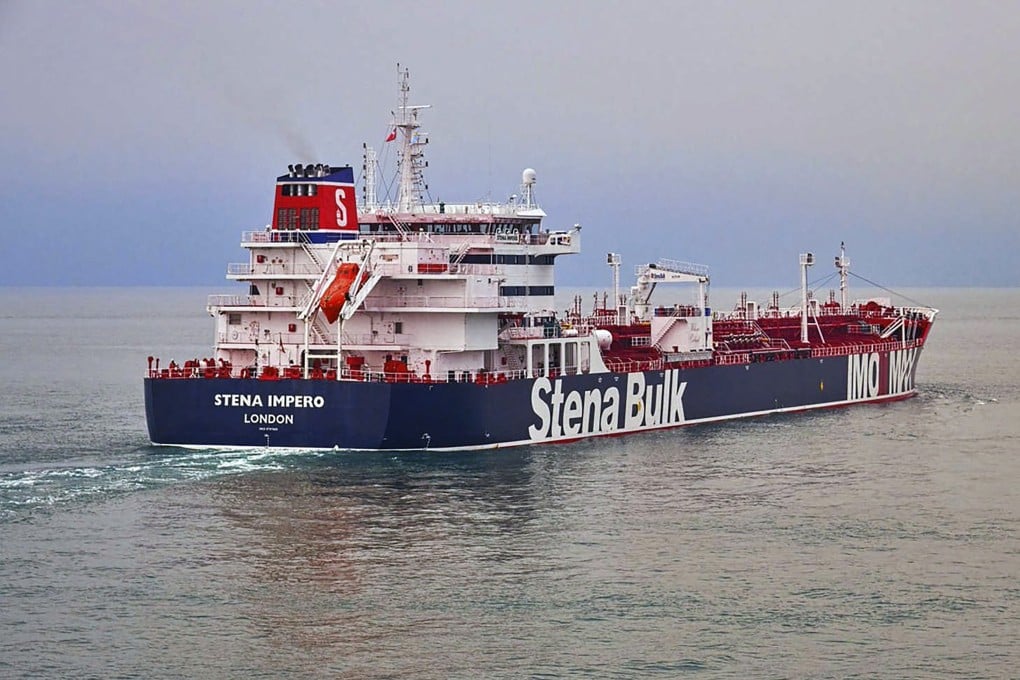Advertisement
Seizure of British ship Stena Impero a ‘reciprocal’ move, Iran says
- The vessel had been heading for Saudi Arabia on Friday when it collided with a fishing vessel
- Germany and France urged Tehran to release the tanker, while London warned that ‘there will be serious consequences’
Reading Time:4 minutes
Why you can trust SCMP

A powerful council in Iran said on Saturday the country’s seizure of a British oil tanker in the strategic Strait of Hormuz was in response to London’s role in impounding an Iranian supertanker two weeks earlier.
Spokesman of Iran’s Guardian Council, Abbas Ali Kadkhodaei, was quoted in the semi-official Fars news agency saying “the rule of reciprocal action is well-known in international law” and that Iran’s moves to “confront the illegitimate economic war and seizure of oil tankers is an instance of this rule and is based on international rights.”
The British-flagged Stena Impero was seized by Iran on Friday evening.
Advertisement
The Islamic Revolutionary Guard Corps said it impounded the vessel for breaking “international maritime rules” in the strait.
Two weeks earlier, Britain’s Royal Marines took part in the seizure of an Iranian oil tanker carrying more than 2 million barrels of Iranian crude by Gibraltar, a British overseas territory off the southern coast of Spain. Officials there initially said the July 4 seizure happened on orders from the US.
Advertisement
Advertisement
Select Voice
Select Speed
1.00x